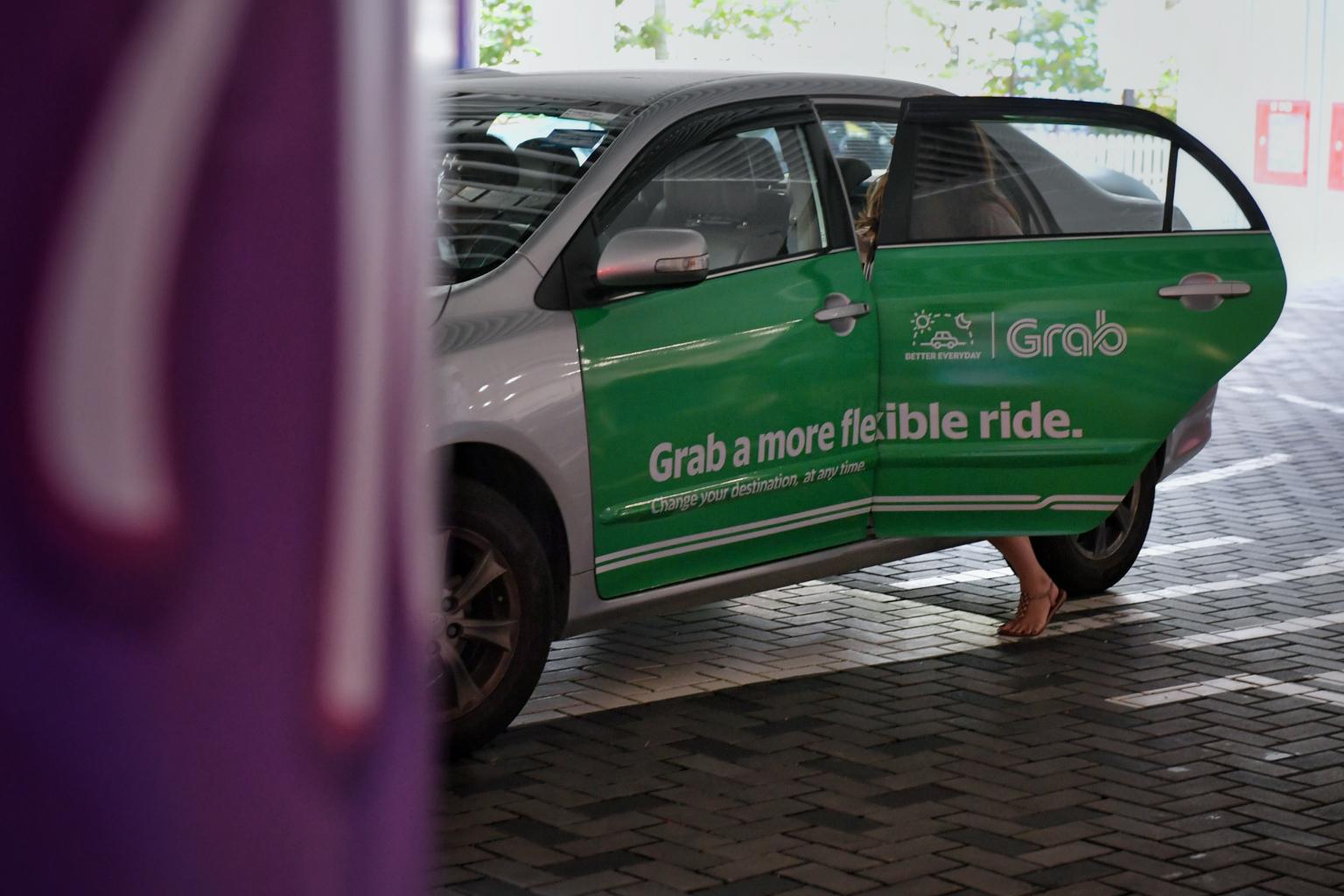Funding for S'pore's tech start-ups hold steady in first half of 2020 despite Covid-19: PwC report
Sign up now: Get ST's newsletters delivered to your inbox

Ride-hailing company Grab is one of the poster boys for the urban solutions and sustainability sector.
PHOTO: ST FILE
SINGAPORE - Funding for tech start-ups has been encouraging for the first half of 2020 despite the coronavirus pandemic, according to a report by professional services firm PwC.
Ride-hailing company Grab and logistics firm Ninja Van were among the best performers as start-ups raised a total of about $3.3 billion during this period, over half of the $6.5 billion of funding garnered for the whole of 2019.
The two companies are the poster boys for the urban solutions and sustainability sector, which continues to attract the most attention from investors.
The report, released on Wednesday (Sept 30), said the sector drew $1.89 billion in funding in the first half of 2020, underpinned by Grab's $1.2 billion raised from Toyota Motor Corporation in February and Ninja Van's near $400 million from investors such as Facebook co-founder Eduardo Saverin's B Capital.
PwC Singapore's Venture Hub leader Patrick Yeo said: "The Covid-19 crisis has disrupted fund-raising in Singapore's start-up ecosystem, but we will continue to see investments coming in this year and ahead. We believe there are significant opportunities in Singapore with high-growth innovative companies for investors to consider."
The report noted that Singapore saw a slide in tech start-up funding in 2019, with investors turning more cautious and focusing more on business fundamentals and cash generation instead of measures of growth potential like the total value of goods sold. In comparison, start-ups raised more than $10 billion in 2018.
Investors were also seen to be turning more demanding at the start of 2020, looking for cheaper valuations and deals of smaller quanta. This led to fewer deals and fewer large deals being struck, PwC said.
Professor Wong Poh Kam of the National University of Singapore Business School pointed out that while the funding figures look to be on a par with 2019, the impact of Covid-19 on deals may not have been as apparent in the first half of 2020 as the deal-making process spans several months and may have begun before the virus struck.
"The effect will be more obvious in the second half of the year, and there will probably be a slowdown in at least the number of deals," he said, adding that the pandemic would have affected how venture capital (VC) firms carry out their due diligence before making their investments.
But VCs have ready capital on hand and there could be an increase in the size of funding, even if the number of deals fall, Prof Wong noted.
OPPORTUNITIES IN GROWTH SECTORS
PwC's report said that health and biotech start-ups have garnered greater attention from investors, particularly given the Covid-19 pandemic. These firms raised $342 million between January and June, which exceeded the $230 million injected for the whole of 2019.
Fintech also continues to be a stronghold in the Republic's start-up ecosystem, with some $400 million invested in start-ups in this domain in the first half of 2020. For example, peer-to-peer lending platform Funding Societies drew some $56 million from the likes of Sequoia Capital and Softbank in April.
The segment raised $686 million in 2019, up from $520 million the previous year.
Meanwhile, the urban solutions and sustainability segment looks to continue its run as an investors' darling.
Mr Hau Koh Foo, director of the Singapore Management University's Institute of Innovation and Entrepreneurship, said that strong public-private partnerships, positive consumer sentiment and burgeoning opportunities would drive this.
"In terms of renewable energies, innovations in biomass, bioenergy and solar also have massive growth potential, as Asia is projected to account for 64 per cent of global increase in renewable energy capacities by 2040," he noted.
PwC's Mr Yeo said the pandemic has placed new demands on start-ups and investors.
"It's now important for investors to lay greater emphasis on the fundamentals and resilience of the start-ups' business models. On the flip side, outstanding start-ups should be able to clearly show how they have emerged much stronger and more relevant in the new post-Covid-19 world," he said.
A spokesman for the Action Community for Entrepreneurship noted that investors are more cautious about deploying their funds into start-ups during this pandemic period where recovery is uncertain and not guaranteed.
"Start-ups should ensure that they can survive without equity financing and instead source from the best capital - customers who buy their services and products. Investors will continue to back companies that have market demand," he said.
The report also highlighted that there has been a rapid increase in Series A funding - the first round of venture capital funding for a start-up which follows the seed funding stage - and subsequent Series B and C rounds in recent years, demonstrating how Singapore's start-up ecosystem is maturing.
In the first half of 2020, $586 million of Series A funding was raised, close to 70 per cent of that closed in Series A rounds in 2019. Similar growth was seen for subsequent funding rounds between 2017 and 2019, PwC noted.


